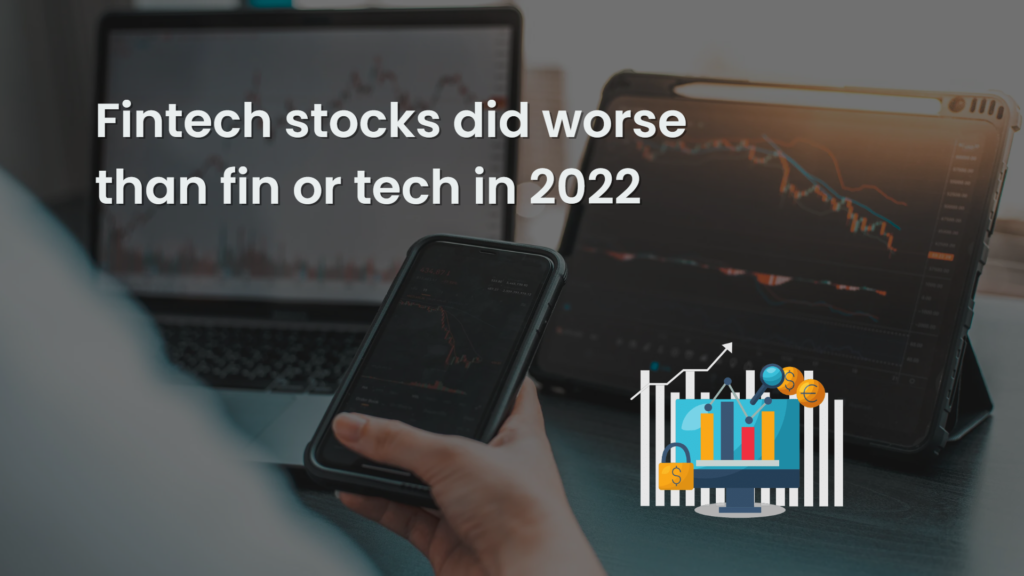The banks of the future are having a difficult time right now.
Long lauded for their vision of bringing Silicon Valley-style innovation to the lending, investing, and payments industries, financial-tech companies underperformed both financial stocks and tech stocks more broadly in 2022. The vulnerability to higher interest rates, the disappearance of many pandemic-era catalysts, and a broader reckoning for companies that followed growth-at-all-costs playbooks all contributed to the demise of many fintech firms.

In 2022, the Global X Fintech ETF fell 52%. That is significantly worse than the 12% drop in the Financial Select Sector SPDR Fund, which tracks the S&P 500’s financial sector, and the 33% drop in the Nasdaq Composite Index.
Other fintech-focused funds and indexes fared even worse. Cathie Wood’s ARK Fintech Innovation ETF, which holds Shopify Inc., Block Inc., and Coinbase Global Inc., fell 65% in 2022. Through late December, the F-Prime Fintech Index, which aims to “track the performance of disruptive fintech companies,” was down 71%. Six of the index’s 60 companies—Affirm Holdings Inc., Dave Inc., Doma Holdings Inc., Opendoor Technologies Inc., Root Inc., and Upstart Holdings Inc.—will have dropped more than 90% by 2022.
After the Federal Reserve began raising interest rates to combat inflation in 2022, all manner of high-growth tech stocks plummeted. Higher interest rates provide investors with more options for investing their money for consistent returns, making them less willing to take a risk on tech stocks that promise growth.
Higher interest rates, on the other hand, posed an additional challenge for balance-sheet-heavy fintech firms. Affirm and Upstart, for example, rely on banks and money managers to fund the loans they make to borrowers. Nontraditional consumer lenders are now paying higher interest rates to borrow money, squeezing their margins and even driving some smaller players out of business.
Many fintech firms also mistook the cyclical boosts they received during the pandemic for long-term changes. PayPal Holdings Inc. and Shopify made the mistake of assuming that the high levels of online shopping seen in 2020 and 2021 would continue, forcing them to cut costs when in-store shopping returned the following year. Robinhood Markets Inc. hired over a thousand additional employees in 2021 to keep up with expected high trading volumes, only to have to lay off many of them when investor interest waned.